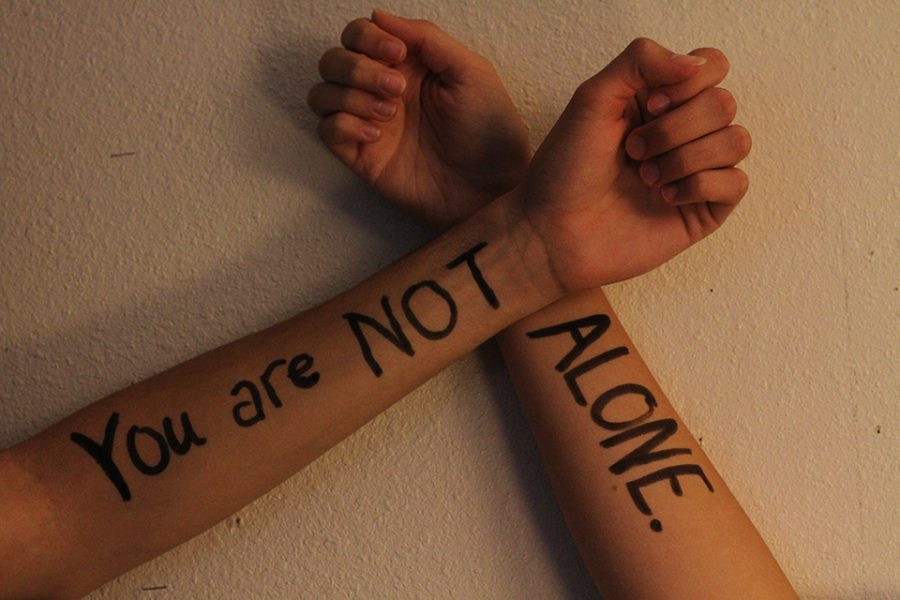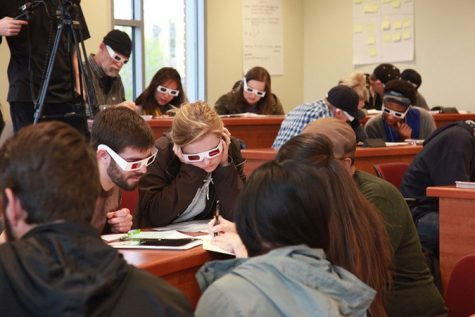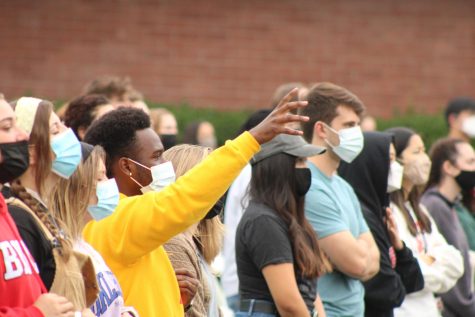Biola fights for suicide prevention
Residence Life, Student Care, and the Biola Counseling Center share their procedures for mental illness.
September 26, 2017
College is a stressful time. For some, it may cause lack of sleep or the need to let loose. For others, the stresses of the everyday college life contribute to mental illnesses such as anxiety, depression or even suicidal ideation.
The month of September is Suicide Prevention Awareness Month. A freshman survey by the Cooperative Institutional Research Program shows 85 percent of students at Biola felt anxious and 51 percent felt depressed. Though invisible, mental illness is not a joke,
Biola takes measures to fight and prevent mental illness by emphasizing student care. Resident directors and resident advisors are trained to handle these situations, and the Biola Counseling Center has therapists on call. Student Care and the BCC work in tandem to serve students who are struggling with mental illness.
Releasing the Stigma. It happens at Biola too
Director of the BCC Melanie Taylor noted how Biola students are not unusual for dealing with suicidal thoughts or mental illness. College students nationwide deal with this struggle.
“We have a significant amount of students that we work with each year, who are somewhere from thinking kind of generalized thoughts of ‘I don’t want to live,’ ‘Life is overwhelming’, to students who have actually made an attempt on their life, so we kind of see it as a spectrum,” said Katie Powell, director of Student Care . “We see it as an ongoing concern that we want to help address on our campus.”
The procedure at Biola and training of Resident life.
Suicide falls into three stages according to Alpha West RD Sarah Brown. The first is suicide ideation, which is generic thoughts of doing harm to oneself. The second is suicide intent in which there is a plan in place. The third is suicide attempt, which is the act of trying to commit suicide. Residence life follows different protocols to handle each one.
“If they’re even beginning to entertain the thoughts of ending their life or harming themselves, an improper response would be for an RA to evaluate that themselves and to not do anything with that information,” said Jordan Lounsbury, North Horton RD.
If a student or an RA finds out about a student dealing with suicidal thoughts, the proper procedure is to contact an RD. They can either contact an RD directly or call Campus Safety dispatch who will contact the RD. The RD then goes and meets with the at-risk student and intakes where they are. Then an RD and an on-call therapist give recommendations for support.
“Our hope and our aim is to really care for a student in the moment,” Brown said. “More than protocol, we want that because we want them to be cared for and safe and to make the steps, but we also want to provide the support for them to be seen in the reality of what they’re experiencing.”
From there the student suffering with suicidal thoughts meets with a director of Student Care. The directors then connect the student to the resource which would benefit them most, including the BCC, the Learning Center, Spiritual Direction or Pastoral Care.
“The Residence Life staff is similar to my role,” Powell said. “We see ourselves more as a starting point and getting students connected to helpful resources. We’re not the end goal most of the time. When it’s significant mental health issues, we’re going to want to get them connected to people who are trained to really support the student.”
How students can help prevent.
Powell shared that being direct and connecting those who are suffering from suicidal thoughts to supportive help is what prevents suicide the most.
“Not being too afraid to ask, ‘Are you having thoughts about not wanting to live or wanting to die?’ And knowing that it’s okay to ask the question,” Powell said. “For students, not having to carry that alone, you know if it’s a friend. That might mean a hard conversation, and hard moment, if the person doesn’t want you to reach out, but sometimes that’s the best thing we can do is get them connected to support and not hide the situation.”
Brown shared that if a student suspects one of their peers is having suicidal thoughts to call Campus Safety.
“Even if it’s a one time comment, it doesn’t hurt to call, because you don’t want to live with that burden,” Brown said. “ It’s always better to err on the side of safety.”
Student Care suggests students reach out to an RA or RD if a peer living on campus is struggling with suicidal thoughts. If the friend is a commuter, reach out to the commuter life staff or Student Care. Other off campus resources include the JED foundation, the National Suicide Prevention 24-Hour Lifeline: 1-800-273-TALK, and the Didi Hirsch 24-Hour Suicide Crisis Line: 1-877-727-4747.
“What I want students to know who are struggling is that they are not alone,” Powell said. “There’s other students struggling, and even though sometimes that feels really lonely, that we want to support our students going through that. We don’t want them to walk alone. We want to support them.”








